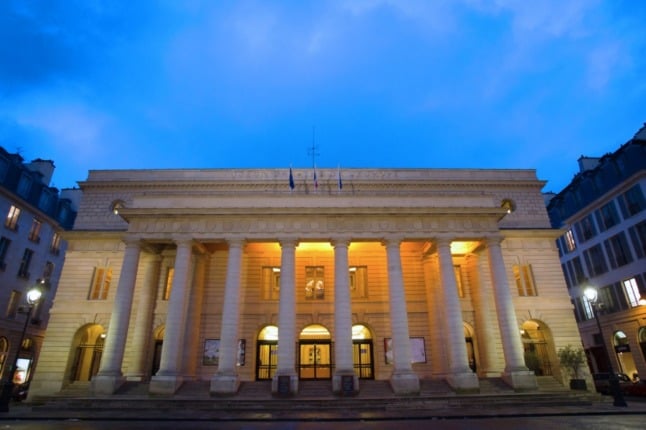When the curtain went up on opening night, the musical became the first work shown at the Teatro del Soho, a former cinema which has been completely revamped by the 59-year-old actor, who like Picasso, was born and raised in Malaga.
The musical, performed entirely in Spanish, was specially chosen by Banderas, who in May won best actor at the Cannes film festival for his role in Pedro Almodovar's “Pain and Glory” in which he played the celebrated director's alter ego.

A Broadway hit dating back to 1975, the story focuses on a group of aspiring dancers as they audition for a role in a new musical, putting the focus on the unsung heroes working in the industry.
“There are no stars, the focus is on those people who really sustain the musical theatre industry but who don't have their name in lights and who are unknown,” Banderas told reporters earlier this week.
Describing the musical as “a classic”, Banderas said it told a story about “those involved in performing arts and all the suffering that goes on behind the scenes”.
On accepting his award at Cannes, Banderas admitted he himself had struggled over the years, saying: “There is a lot of sacrifice and… pain behind being an actor or being an actress, but also there are nights of glory.”
Central role
The Andalusian actor, who began acting in the early 1980s, also took part in Friday's show, playing choreographer Zack who auditions the other artists in a performance involving 26 actors and accompanied by a 22-piece orchestra.
The musical has sold out in the newly-revamped theatre, which has more than 800 seats.
READ MORE:
- Banderas wins Cannes 'best actor' as Almodovar alter ego
- Antonio Banderas launches his own fashion label
- Antonio Banderas stars in Málaga Holy Week

After two months in Malaga, the show will then head to the northern port city of Bilbao, then Barcelona and finally Madrid.
“Afterwards we'll consider the possibility of taking it to America,” said Banderas who dreams of seeing his Spanish version on Broadway.
“I would love that to happen,” he admitted, saying “conversations were already under way” about taking it across the pond.
His involvement in the Malaga theatre really took off after he survived a heart attack in 2017 that saw him endure three operations.
Theatre is “really my passion”, Banderas said at Cannes, explaining he was spending a lot of time with his 600 students in Malaga and saying he ultimately wanted to stage something based on “my own writing”.
For him, the Soho Theatre is a venture in which he is both emotionally and financially invested, pledging more than 200,000 euros ($220,000) a year to the project which is sponsored by Spanish lender Caixabank.
And as director, Banderas has brought in Lluis Pasqual, a giant of Spanish and European theatre, who formerly served as artistic director at Spain's National Drama Centre, Barcelona's Lliure Theatre and the Odeon Theatre in
Paris.
For Banderas this also has significance, recalling it was Pascual who “changed my life” when he took him on at Madrid's National Theatre in 1981.
And while in Madrid, he met Almodovar who gave him a small role in his 1982 screwball comedy “Labyrinth of Passion”, starting a relationship which has lasted until today.
By AFP's Jorge Guerrero



 Please whitelist us to continue reading.
Please whitelist us to continue reading.
Member comments